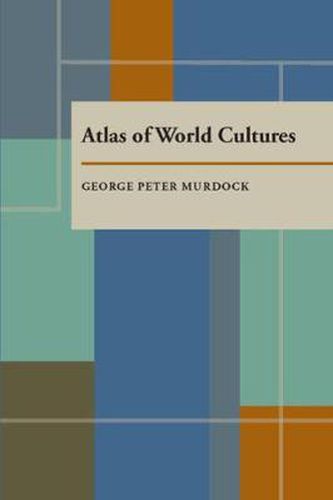Readings Newsletter
Become a Readings Member to make your shopping experience even easier.
Sign in or sign up for free!
You’re not far away from qualifying for FREE standard shipping within Australia
You’ve qualified for FREE standard shipping within Australia
The cart is loading…






The publication of MurdockAEs Ethnographic Atlas in 1967 marked the first time that descriptive information on the peoples of the world-primitive, historical, and contemporary-had been systematically organized for the purposes of comparative research. In this volume, Murdock has completely revised this work, selecting 563 societies that are most fully and accurately described in ethnographic literature. The identification of each society gives its geographical coordinates and date, its identifying number in the Ethnographic Atlas, and an indication of whether it is included in the Human Relations Area Files or the Standard Cross-Cultural Sample. In addition, bibliographical references are offered for each society. The information and suggested research techniques will be of value to comparativists in anthropology, history, political science, psychology and sociology. Most importantly, it offers a simple method fro choosing a valid sample of the worldAEs known societies for cross-cultural research.
$9.00 standard shipping within Australia
FREE standard shipping within Australia for orders over $100.00
Express & International shipping calculated at checkout
The publication of MurdockAEs Ethnographic Atlas in 1967 marked the first time that descriptive information on the peoples of the world-primitive, historical, and contemporary-had been systematically organized for the purposes of comparative research. In this volume, Murdock has completely revised this work, selecting 563 societies that are most fully and accurately described in ethnographic literature. The identification of each society gives its geographical coordinates and date, its identifying number in the Ethnographic Atlas, and an indication of whether it is included in the Human Relations Area Files or the Standard Cross-Cultural Sample. In addition, bibliographical references are offered for each society. The information and suggested research techniques will be of value to comparativists in anthropology, history, political science, psychology and sociology. Most importantly, it offers a simple method fro choosing a valid sample of the worldAEs known societies for cross-cultural research.